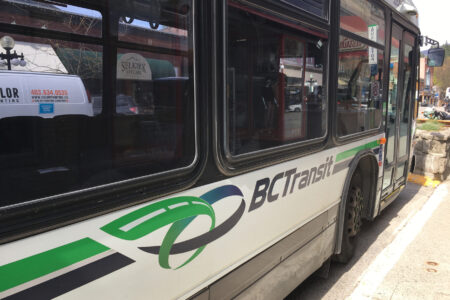Tax Tips for Post-Secondary and Graduate Students
Tax time is getting closer than we think (2016 deadline to file is May 2) and The Nelson Daily, with help from H&R Block, is providing tips to the public leading up to the final day of filing to CRA.
Today the focus is on tips for students when filing tax returns.
Get credit for textbooks: A post-secondary student can claim $65 for every month they qualify for the full-time education amount. Part-time students can claim $20 per qualifying month. But the credit does not depend on how many textbooks you purchase – it is standard for every student who qualifies.
Enjoy a tax-free scholarship: Scholarships and bursaries are tax free if the related program qualifies for the education amount. Scholarships at the secondary school level are also non-taxable, but not scholarships received for post-doctoral work.
Get on the bus: For students who depend on transit to get to campus, keep your passes to claim the Transit Tax Credit. The program also includes electronic passes if used to pay for 32 trips during a 31-day period and weekly passes purchased for four consecutive weeks. You need the receipts and transit passes to back up your claim.
Get the GST credit: Students turning 19 before April 1, 2017 should file a 2015 tax return even if they had no income. This will allow them to collect the GST/HST credit for the first payment period following their birthday.
Tuition credits add up: No matter who paid the tuition, the student will receive a T2202A for the amount of tuition paid for 2015. If you do not receive a T2202A, you cannot claim tuition. The form allows you to claim tuition and education amounts as well as the Textbook Tax Credit.
Sharing education credits: A student must use their tuition and education amounts on their tax return first to reduce their tax payable to zero before deciding whether to transfer an amount to a parent, grandparent or spouse. The student can transfer up to $5,000 in one year and any amount remaining is carried forward to use in future years. Once the credits are carried forward, they cannot be transferred.
Lifelong Learning Plan: If you have an RRSP, you can withdraw up to $10,000 per year without penalty to finance your post-secondary or post-graduate studies (to a maximum of $20,000). Students must be enrolled full-time to qualify for the LLP, or have a written offer to participate in a full-time program. Spouses and common-law partners can use the LLP for each other’s schooling. Once funds are repaid to the RRSP, a student can begin participating in the LLP again.
Moving credits: If you move more than 40 kilometers to take a summer job, you may be able to claim moving expenses against your employment income at the new location. Deductible expenses include travel, transportation, storage and the cost of meals and temporary accommodation for up to 15 days.
Loan interest: You can claim a credit for Interest on government and provincial student loans that you are repaying. Loans and credit lines outside of the government program are eligible.
A tax professional at H&R Block at 810 Vernon Street, Nelson, BC, V1L 4G4 can talk about other credits and deductions that may affect you. Call (250) 354-4210 and ask for Ellen. Or to find the office nearest you visit www.hrblock.ca

























